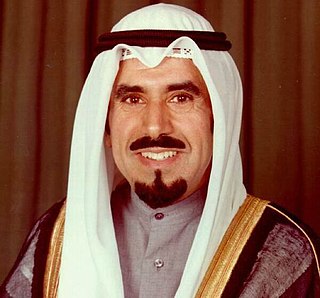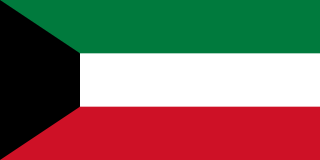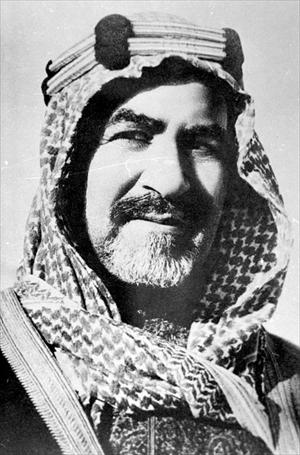| |||||
| Decades: | |||||
|---|---|---|---|---|---|
| See also: | Other events of 2003 List of years in Kuwait Timeline of Kuwaiti history | ||||
The following lists events that happened during 2003 in Kuwait .
| |||||
| Decades: | |||||
|---|---|---|---|---|---|
| See also: | Other events of 2003 List of years in Kuwait Timeline of Kuwaiti history | ||||
The following lists events that happened during 2003 in Kuwait .
Kuwait is a sovereign state in Western Asia located at the head of the Persian Gulf. The geographical region of Kuwait has been occupied by humans since antiquity, particularly due to its strategic location at the head of the Persian Gulf. In the pre-oil era, Kuwait was a regional trade port. In the modern era, Kuwait is best known for the Gulf War (1990–1991).

The Kuwait Armed Forces are the military forces of the State of Kuwait. They consist of the Kuwait Air Force, the Kuwait Army, the Kuwait Navy & the Kuwait National Guard. The governing bodies are the Kuwait Ministry of Defense, the Kuwait Ministry of Interior, and the Kuwait Fire Service Directorate. The Emir of Kuwait is the commander-in-chief of all defense forces while the Crown Prince is the deputy commander.

The House of Sabah is the ruling family of Kuwait.

Sheikh Jaber Al-Ahmad Al-Jaber Al-Sabah or Jaber III was Emir of Kuwait from 31 December 1977 until his death in 2006.
The following lists events in the year 2003 in Iraq.

The Iraqi invasion of Kuwait began on 2 August 1990 and marked the beginning of the Gulf War. After defeating the State of Kuwait on 4 August 1990, Iraq went on to militarily occupy the country for the next seven months. The invasion was condemned internationally, and the United Nations Security Council (UNSC) adopted numerous resolutions urging Iraq to withdraw from Kuwaiti territory. The Iraqi military, however, continued to occupy Kuwait and defied all orders by the UNSC. After initially establishing the "Republic of Kuwait" as a puppet state, Iraq annexed the entire country on 28 August 1990; northern Kuwait became the Saddamiyat al-Mitla' District and was merged into the existing Basra Governorate, while southern Kuwait was carved out as the all-new Kuwait Governorate. By November 1990, the adoption of UNSC Resolution 678 officially issued Iraq an ultimatum to withdraw unconditionally by 15 January 1991 or else be removed by "all necessary means" from Kuwaiti territory. In anticipation of a war with Iraq, the UNSC authorized the assembly of an American-led military coalition.

Sheikh Nawaf Al-Ahmad Al-Jaber Al-Sabah was Emir of Kuwait from 2020 until his death in 2023.
Silk City is a large infrastructure project in northern Kuwait which is currently under development. The project will be built in individual phases. In May 2019, the Sheikh Jaber Al-Ahmad Al-Sabah Causeway opened as part of the Silk City project's first phase, the project's first phase also includes Mubarak Al Kabeer Port which is currently under construction. The Silk City project is part of China's Belt and Road Initiative.

Jaber al-Ahmad International Stadium is a multi-purpose stadium in the Ardhiyah area of Kuwait City, Kuwait. Completed in 2009, it is used mostly for football matches and athletics. The stadium has a capacity of 60,000 seated spectators, the building is constructed in 4 levels, with 54 corporate boxes and a parking lot with a 6,001-car capacity. It was expected to open in the second quarter of 2010, but the building failed structural-integrity testing and remained closed for nearly half a decade due to a miscalculation by structural engineers. It was finally opened on 18 December 2015. Jaber Al-Ahmad stadium is currently the new home of the Kuwait national football team.

Kuwait, officially the State of Kuwait, is a country in West Asia and the geopolitical region known as the Middle East. It is situated in the northern edge of the Arabian Peninsula at the tip of the Persian Gulf, bordering Iraq to the north and Saudi Arabia to the south. With a coastline of approximately 500 km (311 mi), Kuwait also shares a maritime border with Iran, across the Persian Gulf. Most of the country's population reside in the urban agglomeration of Kuwait City, the capital and largest city. As of 2024, Kuwait has a population of 4.82 million, of which 1.53 million are Kuwaiti citizens while the remaining 3.29 million are foreign nationals from over 100 countries. Kuwait has the third largest foreign-born population in the world.

The relations between Iraq and Kuwait are longstanding and complex, experiencing many changes through recent decades.

Sheikh Ahmad Al-Jaber Al-Sabah was the tenth ruler of the Sheikhdom of Kuwait from 29 March 1921 until his death on 29 January 1950. He was the longest reigning ruler of Kuwait having reigned for a total 28 years and 305 days.

Sabah Al-Ahmad Al-Jaber Al-Sabah was the Emir of Kuwait from 24 January 2006 until his death in 2020.
Sheikh Mubarak Abdullah Al-Jaber Al-Sabah was a member of the House of Sabah and one of the first Kuwaitis to attain the military rank of lieutenant general. He was one of the first Kuwaitis to be commissioned as an officer by the Royal Military Academy Sandhurst, UK, and the first Kuwaiti to receive an Amiri Decree for appointment as Chief of the General Staff. Mubarak initiated joint training of Kuwait Armed Forces and United States Armed Forces in 1977 and, the following year, was the first military officer to establish conscription.
The following lists events that happened during 2011 in Kuwait.
Events from the year 1991 in Kuwait.

Kenyan–Kuwaiti relations are bilateral relations between Kenya and Kuwait.
The timeline of the Gulf War details the dates of the major events of the 1990–1991 war. It began with the Iraqi invasion of Kuwait on 2 August 1990 and ended with the Liberation of Kuwait by Coalition forces. Iraq subsequently agreed to the United Nations' demands on 28 February 1991. The ground war officially concluded with the signing of the armistice on 11 April 1991. However, the official end to Operation Desert Storm did not occur until sometime between 1996 - 1998. Major events in the aftermath include anti-Saddam Hussein uprisings in Iraq, massacres against the Kurds by the regime, Iraq formally recognizing the sovereignty of Kuwait in 1994, and eventually ending its cooperation with the United Nations Special Commission in 1998.

Kurdistan Region–Kuwait relations are bilateral relations between the Kurdistan Region and Kuwait. While Kurdistan Region has no representation in Kuwait, the latter has a consulate general in Erbil, the capital city in the Kurdistan Region of Iraq, since 2015. Relations were described as a 'historic friendship' and 'brotherly in 2018, and as "deep-rooted" in 2022. Kuwait has substantial economic investments in the Kurdish region which amounted to over $2 billion in 2017.
Events of 2020 in Kuwait.